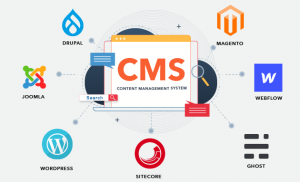How to choose the best keyword for the site

Research the competition and analyze their keywords
The keywords you do your competitive analysis on should be relevant to your business and relevant to the content you’ve already created. This analysis will also help you understand how difficult it is to outperform your competitors in the SERPs, and if it’s not too difficult to outperform your competitors on relevant keywords, you can identify opportunities for high ROI.
These are just some of our favorite tools and tactics for discovering the keywords our competitors are targeting and ranking for. No matter what tool you use for keyword research, don’t forget about your competition; there are some things you can do to learn!

Similar to keyword research, competitor keyword analysis helps you better focus your content creation process. You’ll know which keywords your audience is searching for, which competitors are creating keywords for that content, and how difficult it is to outperform your competitors when creating competitive content.
Identify the search volume for your target keywords
Whether you’re an SEO, PPC specialist, or digital marketing generalist, keyword search volume is an important metric that’s often overlooked by other metrics like click-through rate. However, keyword search volume should be part of the foundation of your efforts – but how do you know which search volume range to target?
Search volume is the average number of searches per month for a keyword. Generally speaking, the higher the search volume for a keyword, the greater the traffic potential for that topic. In the content gap report, there is a search volume column next to the keyword.

As the name implies, keyword search volume is the volume (or number) of searches for a given keyword over a given period of time. Keyword search volume is usually averaged over time to give marketers a sense of the competitiveness and overall volume of search terms. This data is often contextualized for a specific time frame, so SEOs and marketers can understand how specific keywords drive traffic over time.
Identify which keywords are most important for your site
Additionally, keywords have a significant impact on brand awareness and the overall ranking of a website when factors such as relevance, search volume, keyword difficulty, and search intent are considered. Therefore, learning how to choose the best keywords for SEO is critical to the success of your content.
Don’t forget to use keywords wherever possible! Include your keywords in blog posts, social media posts, meta tags, and your website content. The more you use keywords in your content, the easier it will be for your target audience to find you.
After selecting a set of keywords, be sure to check their validity. One of the most important factors to consider when choosing keywords to increase your visibility is relevancy. The more specific your keywords, the better the chances that search engine sites will find your content.

Optimize your website for the selected keyword
The goal of choosing the right keywords for your website is to find the terms with the highest monthly search volume and the least difficulty. When you combine these two metrics, it becomes easier to rank your content in search engines to drive qualified traffic to your website.
Now that you understand the basic details of keywords and how SEO works, you can already choose the right keywords for your content. When creating keywords, always remember to focus on your product or service, your target market, your location and your long tail keywords. Once you have them, make sure you review and monitor them accordingly.
Landing pages display targeted content, so it’s important to optimize them to be relevant to your keyword choices. The keywords you choose will fit into the page title, title, and alt image tags. All of the above should be relevant to the keywords you want to rank for.
Choose a keyword that will be effective for your target audience
Your target keywords should accurately describe the service or product you offer. It should be related to the content of your website. The trick is to think like a customer. Use terms or phrases that your customers are most likely to use to describe your product.

But you don’t want to just target transactional keywords that people are searching for when they’re ready to buy. Consider using informative keywords to fuel your content marketing. This can be done by writing blog posts or creating new pages designed to educate your audience and encourage them to buy.
If you want to target customers who might be interested in a specific product, choose more specific keywords that directly relate to the topic of your ad. Using more specific keywords means showing your ad only on terms that apply to your business. However, keep in mind that if you use keywords that are too specific, you may not be able to reach as many people as you would like.







